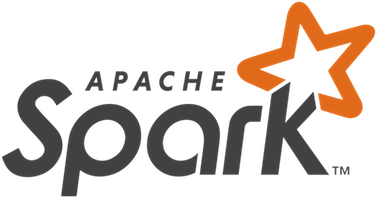Trending Data Engineering Tools: A Comprehensive Guide
Data engineering is a crucial part of the data analysis process. It involves the design, implementation, and maintenance of systems and infrastructure to collect, store, process, and analyze data. In order to effectively perform these tasks, data engineers rely on various tools and technologies that make the job easier and more efficient. In this article, we will explore some of the most popular and trending data engineering tools and platforms.
Airflow
Airflow is a popular open-source platform for creating, scheduling, and monitoring data pipelines. It allows data engineers to create workflows as code, making it easier to maintain and manage pipelines over time. Airflow supports a variety of connectors for popular data sources, such as Hadoop, Amazon S3, and Google Cloud Storage. With Airflow, data engineers can also easily schedule and monitor tasks using a web dashboard.

Category: DataOps
Apache Kafka
Apache Kafka is a distributed streaming platform that is ideal for building real-time data pipelines and streaming applications. It is horizontally scalable and fault-tolerant, making it a popular choice for companies needing to process data from multiple sources simultaneously. With Kafka, data engineers can collect, store, and process data in real-time, enabling faster decision-making and easier data analysis.

Category: Distributed System
Apache Spark
Apache Spark is an open-source distributed computing system that is used for large-scale data processing. It is designed to perform both batch processing and stream processing, making it a versatile tool for data engineers. Spark has a variety of built-in libraries for machine learning, graph processing, and SQL, making it a preferred choice for big data analysis.

Category: Frameworks
Databricks
Databricks is a cloud-based platform for big data analysis and machine learning. It is built on top of Apache Spark and extends its capabilities with additional features, such as collaborative notebooks, drag-and-drop data visualization, and MLFlow for machine learning management. Databricks also offers integrated security and governance features, making it a preferred choice for enterprise use cases.

Category: DataOps
Docker
Docker is an open-source platform for building, shipping, and running applications in containers. It is a popular choice for data engineers who need to create consistent and reproducible environments for their data pipelines. With Docker, data engineers can easily package their code, dependencies, and configurations into a single container, making it easier to deploy and run data pipelines in different environments.

Category: DataOps
Elasticsearch
Elasticsearch is a distributed search and analytics engine that is widely used for log analysis, full-text search, and data visualization. It is built on top of Apache Lucene, and has a powerful query language that makes it easier to search and analyze large datasets. Elasticsearch also integrates with popular data visualization tools, such as Kibana and Grafana, making it a preferred choice for creating interactive dashboards.

Category: Database
Kubernetes
Kubernetes is an open-source container orchestration platform that is widely used for deploying, scaling, and managing containerized applications. It is ideal for data engineering because it helps manage infrastructure and resources, making it easier to deploy and maintain data pipelines. Kubernetes also integrates with popular cloud providers, making it a preferred choice for running data pipelines in the cloud.

Category: Distributed System
Pandas
Pandas is a popular Python library for data manipulation and analysis. It is widely used by data engineers for cleaning, transforming, and analyzing tabular data. Pandas also integrates with other popular Python libraries, such as Numpy and Scikit-learn, making it a preferred choice for machine learning tasks.
Category: Language
Polars
Polars is a new generation data manipulation library for Rust. It is designed to be fast, memory-efficient, and easy to use, making it a promising choice for building data pipelines. Polars also has a Python API, making it easy to integrate with other Python libraries.

Category: Frameworks
Wrapping up
Data engineering is a vital part of the data analysis process, and data engineers rely on various tools and technologies to make